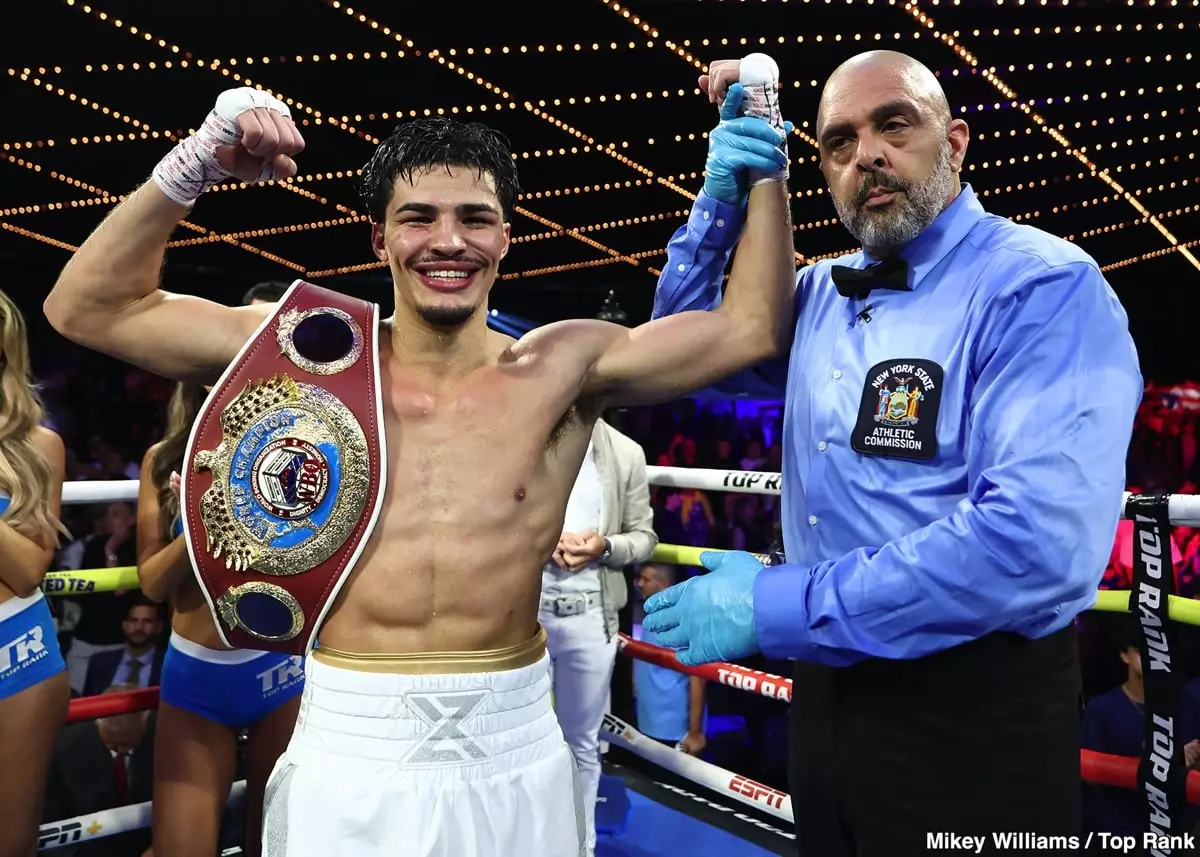In the modern landscape of professional boxing, success isn’t merely about talent in the ring but also about strategic career management. Xander Zayas exemplifies this principle. At just 22 years old, Zayas has rapidly ascended the ranks, culminating in his recent victory to claim the vacant WBO junior middleweight title. His journey underscores the importance of the right environment and meticulous planning by top promoters. Unlike many fighters who struggle to find a clear path to a title, Zayas was guided into an advantageous position that maximized his potentials against contenders dictated by the sanctioning bodies. This calculated trajectory isn’t a sign of unearned success but rather a testament to how well-managed careers can flourish when every move is purposefully orchestrated.
The Illusion of True Achievement in Boxing
Vergil Ortiz Jr.’s recent comments shed light on a pervasive myth in combat sports: that the mere possession of a title signifies genuine achievement. Ortiz’s dismissal of Zayas—who he calls “food”—as lacking accomplishments because he hasn’t fought for a title yet, reveals a misleading perspective. Ortiz himself has yet to participate in a bout for a world championship amid a nine-year career, highlighting how some fighters mistakenly equate title shots with actual success. The reality is that titles can sometimes be a product of strategic matchmaking rather than definitive proof of a fighter’s true level of greatness. The boxing world needs to recognize that the path to a title often involves a combination of luck, timing, and promotional influence, which shouldn’t diminish the fighters who capitalize on the opportunities effectively presented to them.
Promotion and Circumstance: The Hidden Factors in Victory
What Zayas has achieved is not merely a product of skill but also the benefit of superior promotional navigation. His team at Top Rank has adeptly maneuvered him around the complex landscape of sanctioning bodies, giving him an elevated shot against a relatively inexperienced opponent. This is starkly different from Ortiz, who, despite his talents, has not yet found a similar advantage. The disparity in promotional strategy and matchmaking underlines a harsh truth: not all champions are tested equally, and some accolades are borne more out of circumstance than boxing supremacy. Zayas’ quick rise illustrates how mastery behind the scenes can forge a career defying conventional expectations, emphasizing that the sport involves more than boxing ability; it involves strategic career development.
Implications for the Future of Boxing Talent
Critically, the debate surrounding Zayas and Ortiz Jr. exemplifies a broader issue—transactional success versus genuine legacy. Zayas’s win should be viewed as a milestone achieved through well-calculated support, not merely as a sign of natural talent transcending competition. Conversely, Ortiz Jr.’s comments reflect an underestimation of the complex web of factors that create champions. As boxing continues to evolve, the importance of recognizing the nuances behind titles and achievements becomes paramount. Fighters and followers alike must understand that true greatness is often built incrementally, with patience and strategic positioning serving as foundation stones. The sport’s future hinges on valuing not just the belts but the stories of perseverance, smart promotion, and calculated progression behind them.


Leave a Reply